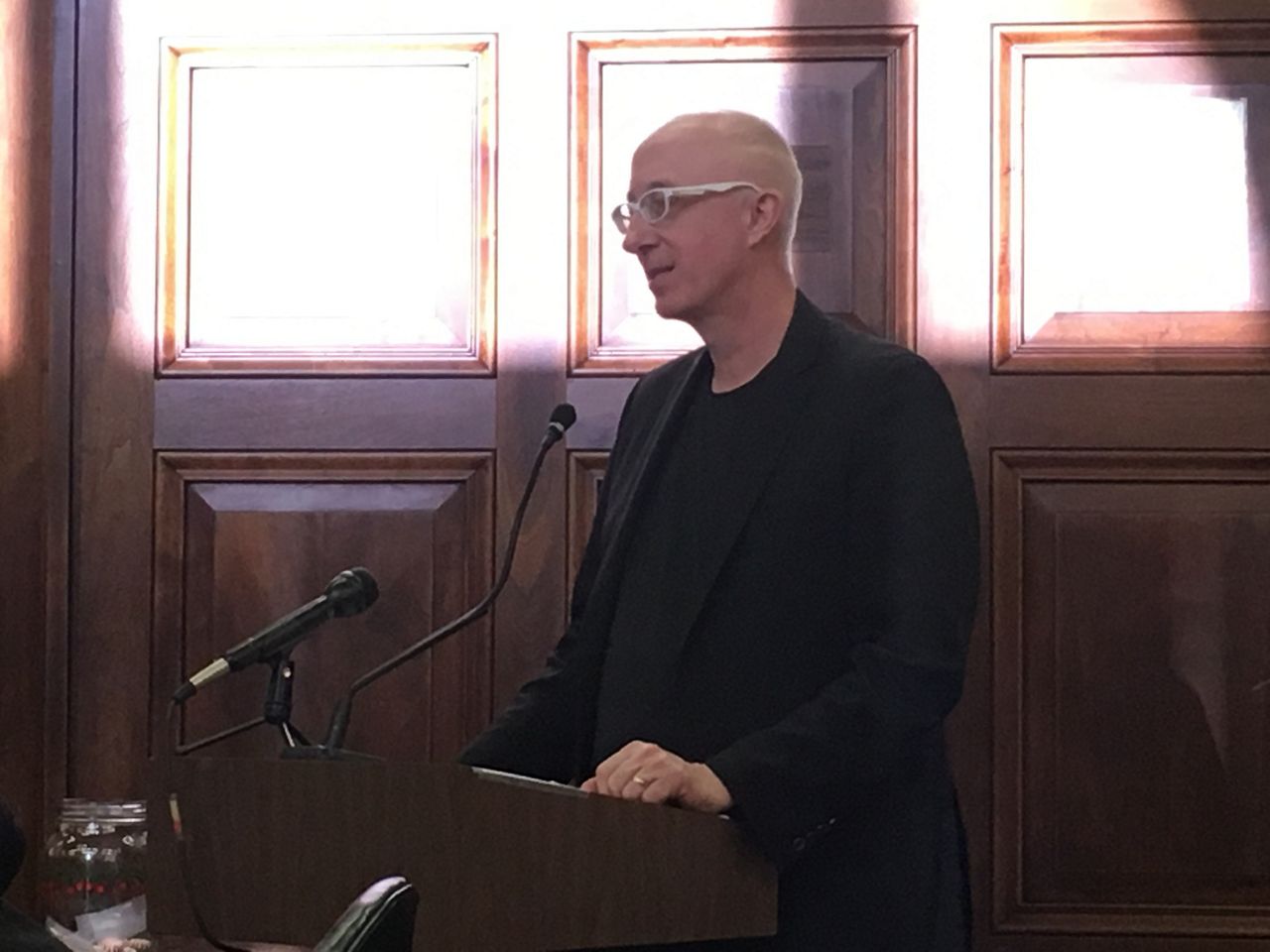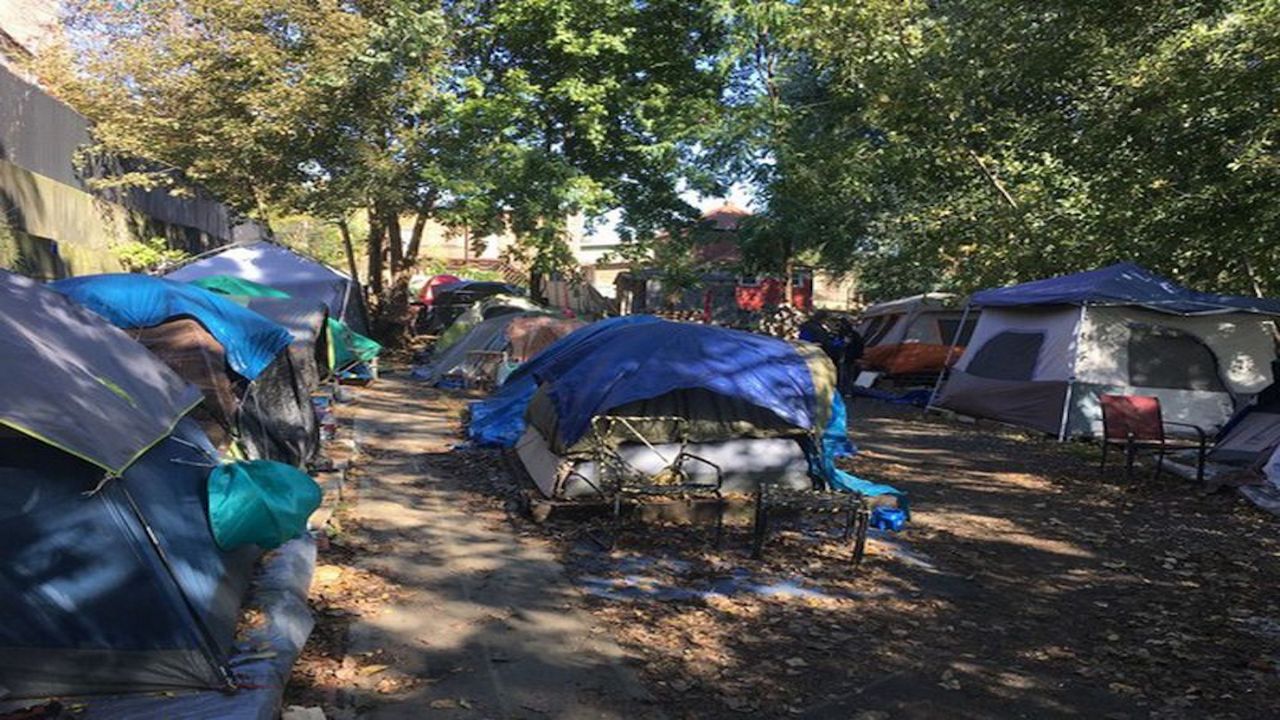AKRON, Ohio — Homeless advocate Sage Lewis has filed a petition with the U.S. Supreme Court in a move that could clear the way for him to temporarily house homeless people once again in the yard of his East Akron property.
The move could be Lewis’s final play in a years-long effort to be allowed to house homeless Akronites in tents on the property, said Diana Simpson, an attorney with Institute for Justice, which represents Lewis. The Institute for Justice is a nonprofit, public-interest law firm headquartered in Arlington, Va.
Akron officials declined to comment on Lewis’s petition, referring to the move as pending litigation.
In September, the Ohio Supreme Court declined to hear the case, Simpson said.
“The reason that we are at least somewhat optimistic, and the reason that we think it's worth doing, is that the Supreme Court has made clear that activities that are deeply rooted in our nation's history are subject to constitutional protection,” she said.
Among those activities is using “private property for the charitable, noneconomic purpose of sheltering the needy,” the institute said.
“Sometimes you just have to stand up on the side of what's right, and keep going until you can't go anymore,” Simpson said.
Lewis’s current petition stems from Akron’s 2018 denial of Lewis’s request for a conditional-use zoning variance that would have allowed him to continue sheltering homeless people in tents at his commercial property.
In the variance request, Lewis asked the city to consider the encampment a “campground, tent community,” according to Akron Legal News.
At the time, Lewis housed homeless residents in more than 40 tents in the backyard of the Broad Street property. Known as “Second Change Village,” the encampment drew complaints from neighbors as well as support from community groups.

Lewis, a marketing professional, indicated the encampment was intended to provide interim housing for people transitioning from the streets to permanent housing.
“Just as property owners did during the Underground Railroad, Sage wants to use his private property to shelter the most desperate in moments of life-threatening peril,” said Institute for Justice attorney Jeff Rowes in a statement. “The U.S. Constitution doesn’t allow Akron to use its zoning code to make that illegal.”
Following the city’s denial of the conditional-use variance, Lewis was served with a notice of violation, and ordered to clear the tents from the property.
Lewis, who also operated the nonprofit Homeless Charity, appealed to the Board of Zoning Appeals, and argued the city’s zoning code is unconstitutional because it doesn’t allow for tent encampments for the homeless.
In early 2019, the Akron Planning Commission upheld the city’s denial, determining a “campground” is not a permitted use in a residential district.
Lewis then appealed to the Ohio 9th District Court of Appeals, which upheld the city’s rejection of the variance, reaffirming Akron’s zoning code doesn’t provide for tent shelter.
At the time, Lewis was turned down for a conditional-use variance, the city also issued an “action plan” led by the Summit County Continuum of Care.
The COC is an alliance comprising more than 20 organizations, including the Battered Women’s Shelter, United Way of Summit and Medina Counties, Access Inc. and the Akron Metropolitan Housing Authority. The plan included offering the residents services, ranging from housing and health and wellness treatment, to employment training.
Summit County is awarded about $8 million annually from the U.S. Department of Housing and Urban Development and other agencies to combat homelessness. The money is disbursed to the agencies through the COC, which worked to house the Second Chance Village residents in 2019.
According to the Institute for Justice, when Lewis was fighting the city’s denial of conditional use to house the homeless on his Akron property, he “asserted that the Ohio Constitution protects his right to use private property to help those in desperate need, and that he has a separate constitutional right to rescue those in need.”
According to the Institute for Justice, this is the first legal challenge of its kind concerning the homeless anywhere in the country.



